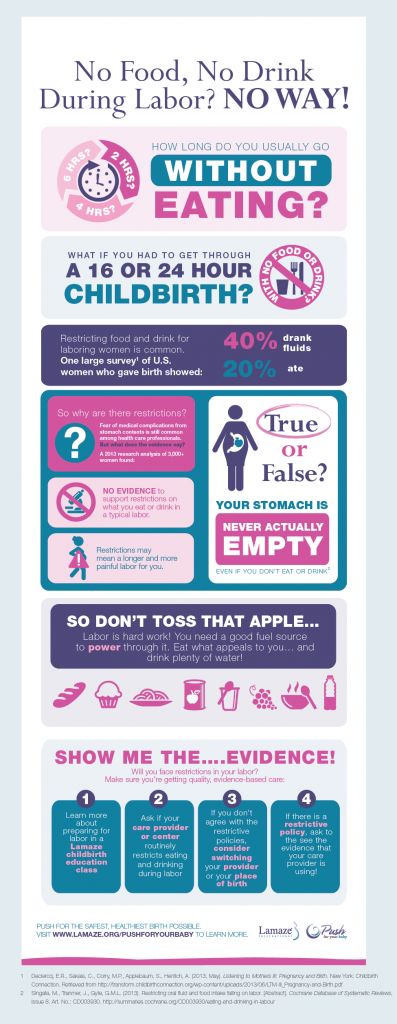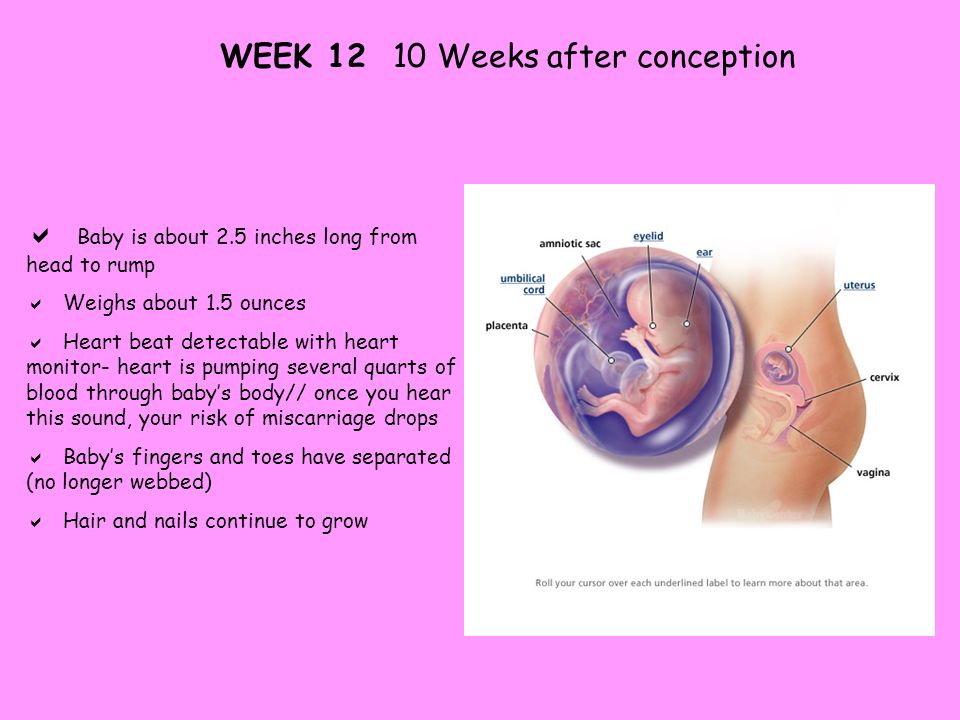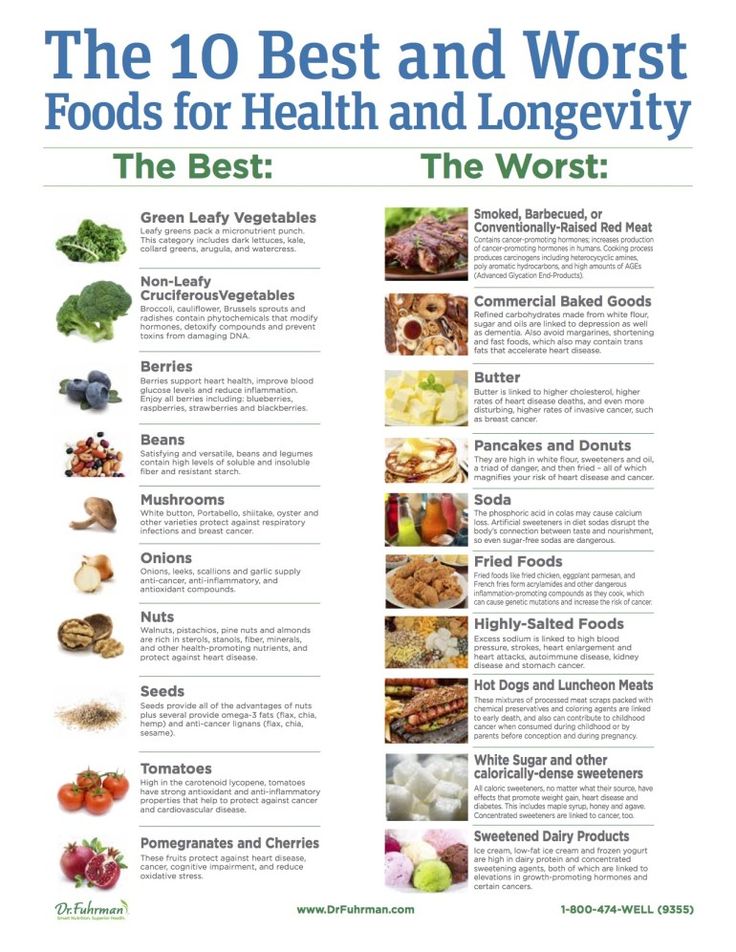What to eat and drink during pregnancy
What Foods to Eat and What to Avoid When Pregnant
- Breastfeeding
- Baby Health
- Pregnancy and Childbirth
By: Ally Gravina
October 11, 2021
Eating a well-balanced and nutritious diet when pregnant is one of the more essential things you can do for your baby and yourself. The basic principles of what to eat when pregnant are quite similar to how we should be eating all the time. This includes focusing on fruits, vegetables, whole grains, lean protein and healthy fats. Of course, there are a few areas that you should pay close attention to when you’re pregnant and a few foods you should avoid. We consulted Renown Health’s Caitlin Bus, RD, LD, CDE to learn more about pregnancy nutrition.
Foods to Eat Regularly:
Veggies
Vegetables of all kinds -- and in all forms -- are beneficial for you and your baby during pregnancy. Veggies ensure your body is getting the fiber, vitamins and minerals it needs. However, fresh or frozen veggies are considered best, but if you choose to eat canned veggies, make sure you choose a low sodium product. The more greens, the better! If you have an aversion to vegetables, especially in the first trimester, try sneaking them into smoothies.
Healthy Proteins
Protein-rich foods support your baby's growth while giving your body the nutrients to build and repair tissues, including your muscles, hair, skin and nails. Although protein requirements vary from person to person, a pregnant woman needs additional protein for her baby's growth, especially in the second and third trimesters. Regularly eating high protein foods -- like fish, chicken, turkey, eggs, peanut butter, nuts and beans –– promotes your baby's healthy brain and heart development. Grains Food like brown rice, quinoa, whole-wheat pasta and oatmeal are great to eat while pregnant. They are rich in fiber, iron, B vitamins and folic acid, which are all beneficial to physical development.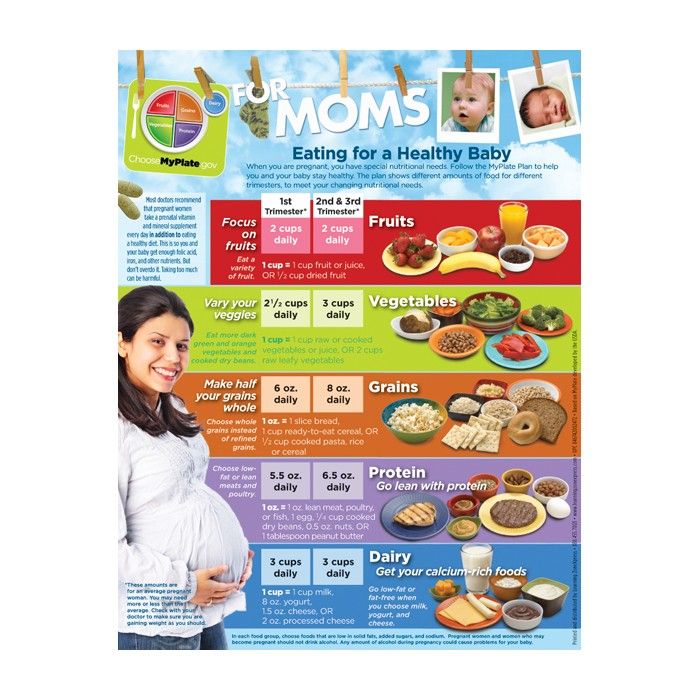 Grains also help alleviate constipation and hemorrhoids.
Grains also help alleviate constipation and hemorrhoids.
Fruits
Fruit can help satisfy any sugar cravings you have when pregnant while also supplying your baby with nutrients – it's a win-win. Some people advise against fruit consumption while pregnant, but this is a myth. Like with all foods, moderation is key. Fruit can be high in sugar, so it is important to be aware of your intake. Also, make sure you are mindful of your preparation – thoroughly rinse produce under running water for 30 seconds to help avoid foodborne illness.
Pasteurized Dairy
Dairy products like milk, cheese and yogurt can be great sources of protein and calcium needed for the healthy development of a baby's bones, teeth and muscles. These foods also help with ensuring healthy heart function and nerve transmission. When buying these products, make sure to choose pasteurized products to avoid exposing your body to germs and bacteria. The American College of Obstetrics and Gynecology recommends 1,000mg of calcium per day for pregnant and lactating women.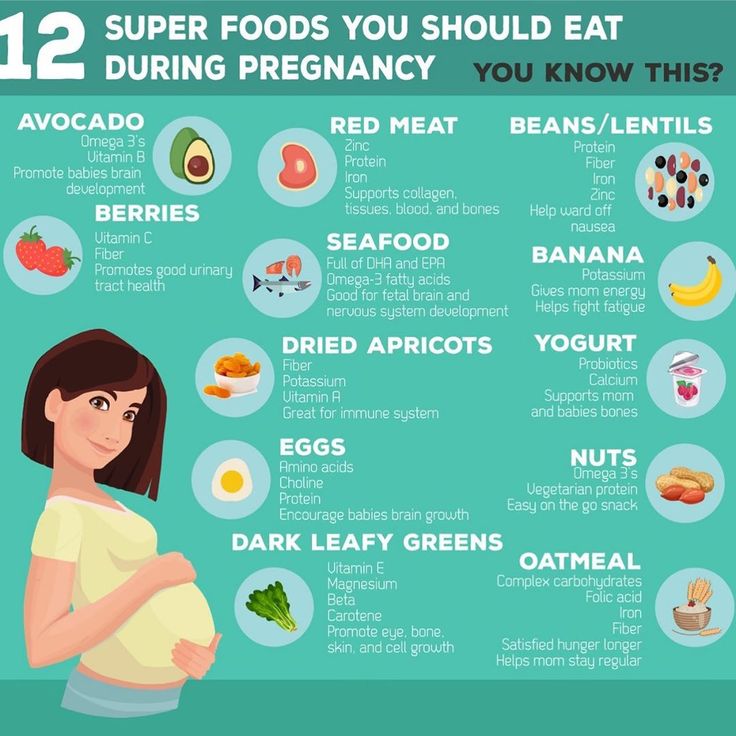 This equates to 4 servings of dairy or calcium-rich foods such as leafy greens, broccoli, tofu, almonds or dried figs.
This equates to 4 servings of dairy or calcium-rich foods such as leafy greens, broccoli, tofu, almonds or dried figs.
DHA Omega-3 Fats
Omega-3s like DHA help support the health of a baby's brain and parts of their eyes. Women who are pregnant or breastfeeding should eat at least 8 ounces and up to 12 ounces of seafood each week. Ideally, food sources that offer DHA omega-3 and that are lower in mercury should be emphasized in your diet, including fish like salmon, sardines and anchovies. If you do not eat fish or omega-3 fortified foods, a DHA omega-3 supplement is recommended.
Choline
Did you know that 92% of pregnant women fail to meet the daily choline recommendation? Choline is crucial for an infant's brain and central nervous system development. One egg supplies 33% of the recommended daily intake. Although choline is often absent or low in prenatal vitamins, the best food sources include eggs, meats, fish, dairy, navy beans, Brussels sprouts, broccoli and spinach.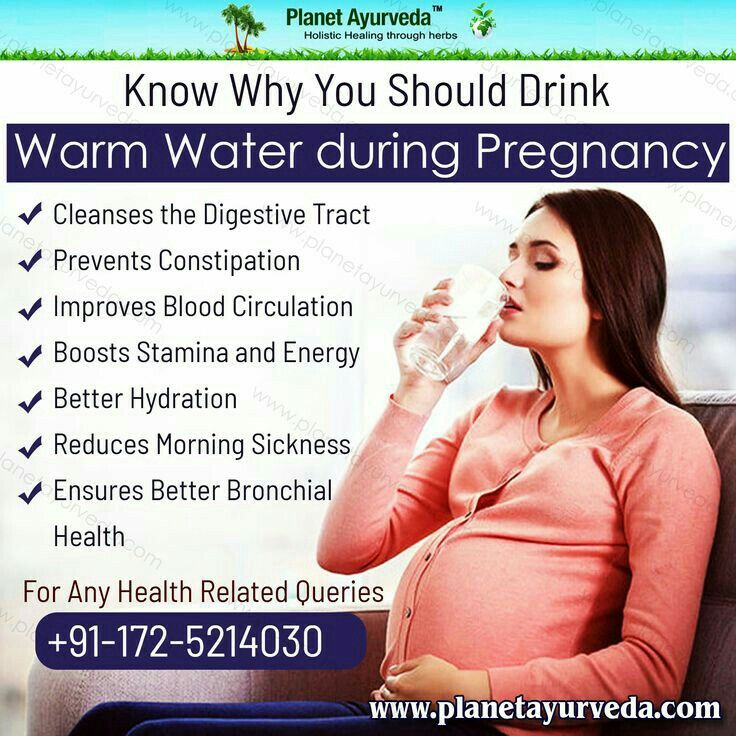
Iron and Folic Acid
Iron is the most common nutrient deficiency during pregnancy. Foods with high and moderate amounts of iron include red meat, chicken, fish, fortified cereals, spinach and beans. Folic acid is used to make the extra blood your body needs during pregnancy. Consuming adequate folic acid early in pregnancy reduces the risk of birth defects that affect the spinal cord. It is recommended to consume 400 micrograms (mcg) per day for pregnant women. This amount is included in your prenatal vitamins.
Water
Staying hydrated is one of the best things you can do for yourself and your baby when pregnant. In addition to just being good for you, hydration alleviates morning sickness and nausea, while dehydration can lead to contractions and even pre-term labor. Aim for 10 cups of fluids per day, on top of the water naturally occurring in foods.
Foods to Avoid:
Raw Fish and Fish with High Mercury Content
Sorry sushi fans, according to the Center for Disease Control and Prevention, pregnant women are 10 times more likely to get infected by Listeria, a bacteria found in raw or undercooked fish.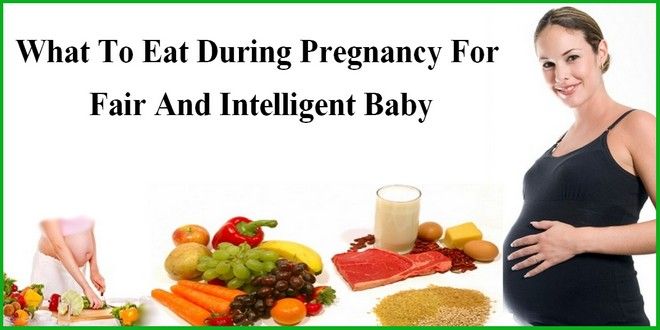 Also, avoid fish often found to be high in mercury, including swordfish, king mackerel, tuna and marlin.
Also, avoid fish often found to be high in mercury, including swordfish, king mackerel, tuna and marlin.
Processed or Raw Meat
Similar to eating raw fish, eating undercooked or raw meat increases your risk of infection while pregnant. Hot dogs and lunch meats should also be avoided, unless they have been reheated to be steaming hot (for example, in a microwave).
Alcohol
Drinking alcohol when pregnant can impact your baby’s brain development and increases your risk of premature birth, low birth weight or miscarriage. Just don’t do it!
Minimize Caffeine
High caffeine intake during pregnancy can restrict your baby’s growth; therefore, it is recommended that pregnant people limit their caffeine intake to less than 200 mg per day – that’s roughly two cups (16 fl oz) of coffee per day.
Runny Eggs
Eating raw or runny eggs when pregnant increases your risk of Salmonella, which can cause fever, nausea, vomiting, stomach cramps and diarrhea. Always make sure your eggs are cooked through or use pasteurized eggs.
Always make sure your eggs are cooked through or use pasteurized eggs.
-
- Previous Article
Breast Feeding Doesn't Have To Mean Sore Nipples
If you think sore nipples are just a normal part of breastfeeding, think again. Robin Hollen, APRN, and Breastfeeding Medicine Specialist, says that nursing can be an enjoyable experience for mom and baby without pain and discomfort. A top
...
Read More
-
- Next Article
How to Navigate the Baby Formula Shortage
With the ongoing baby formula shortage in the United States, many parents are questioning how they can safely feed their babies and keep them healthy. Pediatrician Karen Wagner, APRN with Renown Medical Group answers some questions on
.
 ..
..
Read More
What to Eat During Pregnancy
Childbearing is the time when you need to take your health seriously and think carefully about what to eat during pregnancy. A healthy diet matters a lot in keeping your baby well-nourished from the time of conception.
It is typical to start going over your diet routines the moment you discover that you’re pregnant. But like others, you may be inclined to seek advice from your mom or friends, the Internet, or you simply rely on your past pregnancy habits. What you may not realize is that each pregnancy is different. Age or environment can be a contributing factor to physical or hormonal changes that may affect pregnancy, so the body’s response could be different.
Like it or not, there are conditions that only a specialist can understand and help you get through. There are also questions about prenatal diet that only a certified nutritionist** can accurately answer.
Go to top
What to Eat During Pregnancy? Eating Right for Baby’s Health!
A balanced diet is ideal for everyone; however, during pregnancy, it’s important to make dietary adjustments based on your specific needs. Knowing what foods are good to eat during pregnancy will help address your pregnancy symptoms (nausea, vomiting, edema, constipation and heartburn, leg cramps and headaches, etc.) and nourish your baby well.
There is no one-size-fits-all meal plan for expecting moms. Some do not have problems with the food they eat and others may start experiencing issues. Certain types of food may worsen their symptoms, while some alleviate them. This is one reason why you might seek help from a prenatal nutritionist, who offers sound advice in terms of food restrictions. These food restrictions during pregnancy are based on several factors such as lifestyle, physical changes and hormonal changes. For now, stick to the basics described below:
These food restrictions during pregnancy are based on several factors such as lifestyle, physical changes and hormonal changes. For now, stick to the basics described below:
Eat more vegetables
When you eat vegetables regularly, you are providing many benefits to your body. Some of the benefits of vegetables include:
- they are low in fat, calories and cholesterol
- they are good sources of fiber (to help combat and prevent constipation)
- they contain many vitamins and minerals, including folate (which helps reduce the risk of neural tube defects and spina bifida during fetal development)
Don’t be afraid to get creative with adding vegetables to your diet, such as adding them to sandwiches, mixing them into dishes or blending them into smoothies. You can also try to eat a variety of vegetables in any form (raw, cooked, fresh, frozen, canned or dried) and in a variety of colors, as they will provide different vitamins and minerals. If canned, choose ones that are low in sodium content.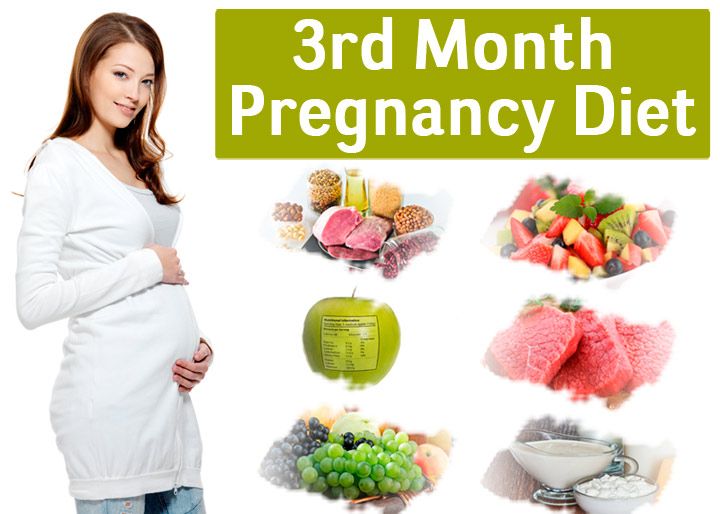 Vegetables are generally healthy, so you don’t need to stick to a particular kind; however, raw leafy vegetables are usually considered the best. Make sure to wash any vegetables thoroughly before eating, since you will be more susceptible to infections during pregnancy.
Vegetables are generally healthy, so you don’t need to stick to a particular kind; however, raw leafy vegetables are usually considered the best. Make sure to wash any vegetables thoroughly before eating, since you will be more susceptible to infections during pregnancy.
Among others, these veggies are full of vitamins and nutrients important during pregnancy:
- Artichokes
- Asparagus
- Broccoli
- Cauliflower
- Celery
- Peppers
- Cucumbers
- Salad greens
- Squash
- Corn
- Sweet potato
Pack on healthy proteins
Fill your plate with healthy proteins. Foods rich in protein will effectively support your baby’s growth and at the same time, provide you the energy that your body needs. It will also promote your baby’s healthy brain and heart development.
Include a portion of the following in your daily meal plan:
- Fish
- Chicken
- Turkey
- Lean meat
- Pork
- Lamb
- Veal
- Eggs
- Peanut butter
- Nuts
- Beans
- Meat substitutes like tofu
Don’t forget the grains
Your prenatal nutrition must include whole grains like brown rice, whole-wheat pasta, cereals and oatmeal.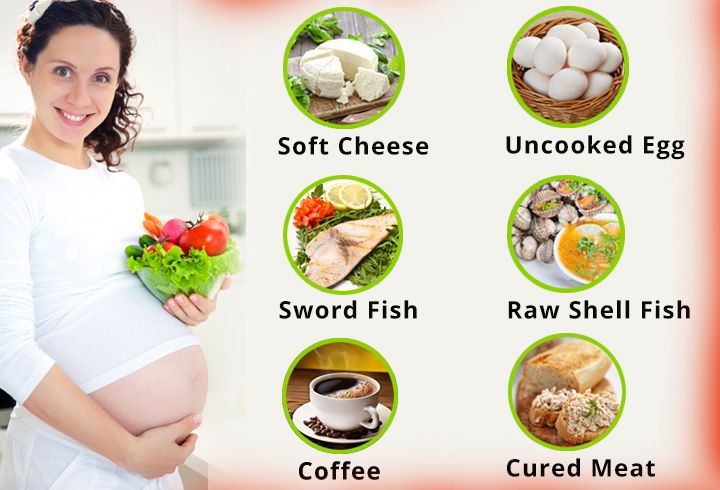 They are rich in fiber, iron, B vitamins and folic acid, which are beneficial for your baby’s physical development. These will also ward off constipation and hemorrhoids, which are some of the common discomforts that you may experience during pregnancy.
They are rich in fiber, iron, B vitamins and folic acid, which are beneficial for your baby’s physical development. These will also ward off constipation and hemorrhoids, which are some of the common discomforts that you may experience during pregnancy.
Color your diet with fruits
Some people will warn you against fruit consumption when you ask them about what not to eat during pregnancy. This is a myth. Fruit isn’t just delicious; it can help curb your sugar cravings and supply you and your baby the necessary nutrients. As long as you aren’t eating them in juice form too often, fruits are an important part of your pregnancy diet. If canned, choose unsweetened.
Be cautious in your preparation of fruit. Don’t use knives used for other raw foods that may have bacteria, and always thoroughly rinse raw fruit under running water. Rinsing your fruit is important since bacteria can be found on the outer rind or peel, which can cause illness or be harmful to you and baby. Cut off damaged or bruised spots to help remove any bacteria hiding out in these areas.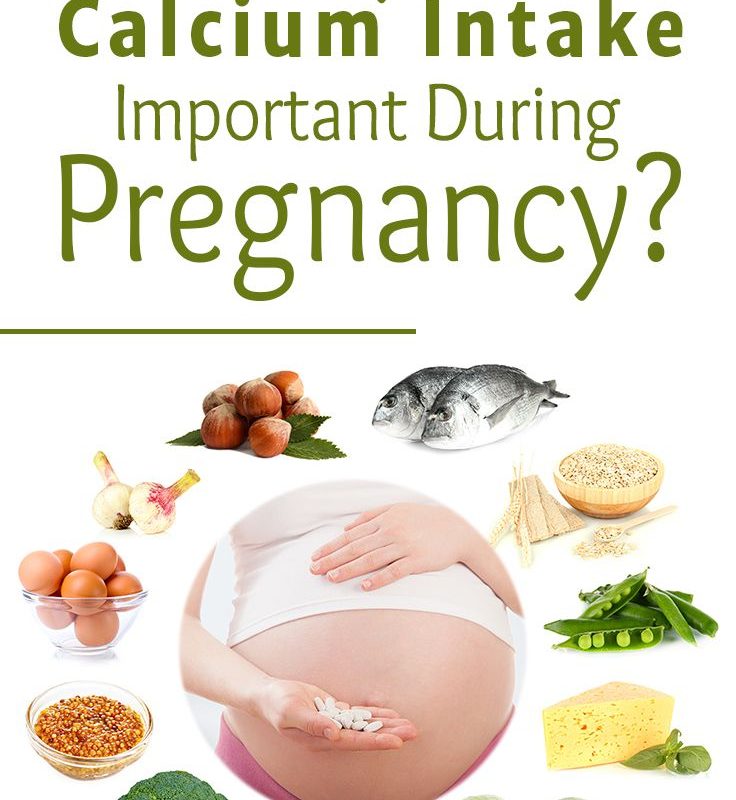
It is worth noting that eating fruits should be done with care. Observing how your body reacts every time you have some will help. For example, if you have a spike in your blood sugar or notice abnormal weight gain, you should cut back.
You can have moderate servings of the following fruits:
- Bananas
- Strawberries
- Apples
- Citrus fruits
- Mangoes
- Pears
- Avocados
- Pomegranates
- Grapes
- Dried fruits
Include healthy dairy
Dairy products are good sources of protein and calcium, which help with your baby’s bone development. If taken in moderation, you do not have to worry about weight gain, but this isn’t your major concern.
When buying dairy products, look out for the word ‘pasteurized,’ especially on cheeses like cotija. During pregnancy, your body is more prone to infections, and pasteurization helps kill germs in dairies like cheese, yogurt and milk. Ideally, pick dairy products that are low-fat.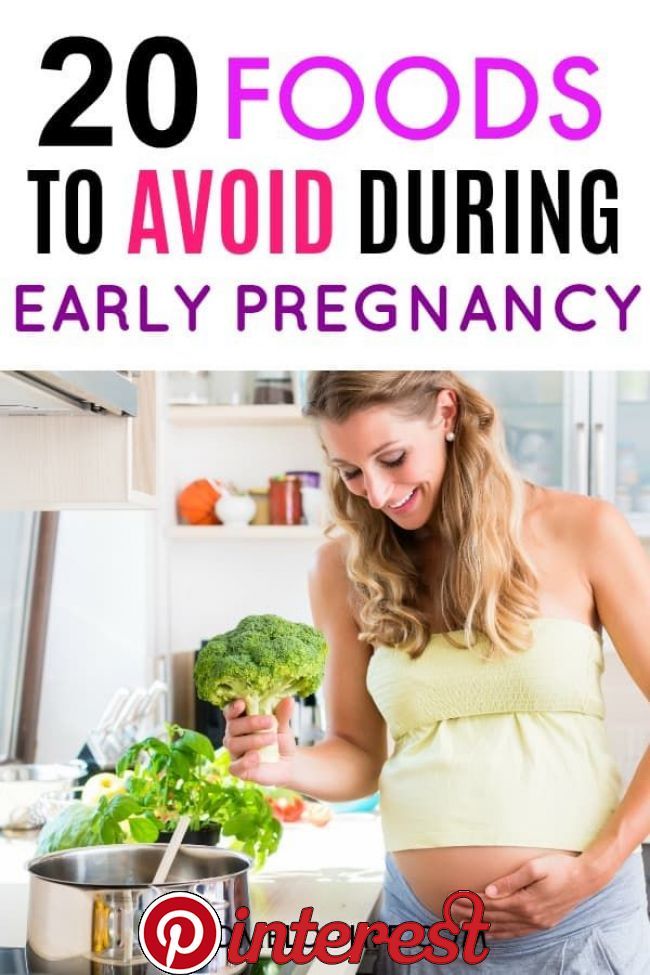
Say ‘yes’ to healthy fats and oils
Among the many food restrictions during pregnancy, oils and fats are on top. Nutritionists do not advise completely giving them up, as they are beneficial for your baby’s brain and eye development. However, your oil intake should be limited to six teaspoons every day. It is also important to consume only plant oils like olive, canola or safflower. Regarding fat intake, solid fats (like lard and butter) are foods you should avoid taking in large amounts while pregnant so you do not gain excess weight.
If you eat healthy, drink healthy, too!
Water is a wonder drink. It addresses many different kinds of health issues and pregnancy is no exception. As much as possible, drink the recommended amount of water every day. Staying hydrated may help alleviate pregnancy symptoms like morning sickness and nausea. In contrast, dehydration, especially if this occurs during your third trimester, can lead to contractions and pre-term labor.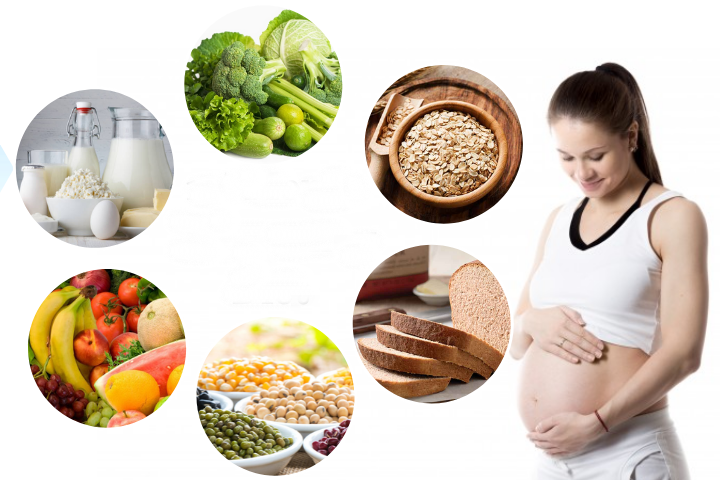 Hydrate with water but never with energy drinks.
Hydrate with water but never with energy drinks.
Cut back on soda and caffeine intake. Switch to fruit drinks and juices as a substitute for soda and caffeine, but still try to limit the amount of fruit juices so you are not taking in too much sugar too quickly. Even better would be to eat a small serving of fruit to help satisfy the sugar or caffeine craving.
And by all means, avoid any kind of alcohol as this will impact your baby’s health. Even once the baby is born, you’ll want to follow these same precautions (including limiting alcohol) while breastfeeding. Continuing these precautions while breastfeeding is important because unsafe foods, like alcohol, can pass through the breast milk to the baby. We consider this the “fourth trimester” of pregnancy.
Go to top
Important Reminders During Your Pregnancy
It doesn’t matter whether you are a first-timer or well familiar with pregnancy–you need to evaluate your diet for each pregnancy. Everything changes when you become pregnant and each pregnancy can be different from the previous one.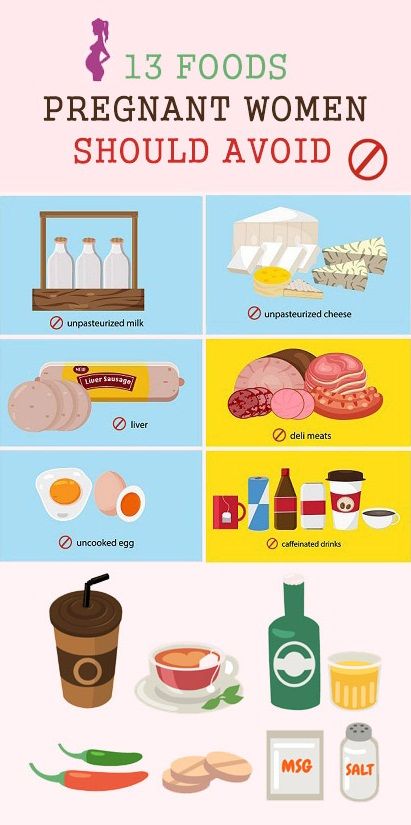 You may need to re-educate yourself about what foods are good to eat during pregnancy or what foods to avoid while pregnant.
You may need to re-educate yourself about what foods are good to eat during pregnancy or what foods to avoid while pregnant.
Professional assistance plays an important role in ensuring you and your child’s safety. It would help if you have someone you can call whenever you have questions or concerns regarding your diet or condition; someone to guide you throughout or warn you against bad eating decisions, big or small.
Below are some of the things you need to consider when eating:
- Food sensitivity is common during pregnancy. Apart from pregnancy, you may have underlying medical conditions that would require you to take extra precautions with your diet. In these cases, having a prenatal care specialist is highly recommended.
- Food allergies do not take a break and neither do food cravings. Often, you will feel hungry now that you are eating for two. Increased hunger means an increased risk of developing food allergies. Your local perinatal dietitian or nutritionist will recommend you the best alternatives so you can avoid certain foods that might cause allergic reactions.
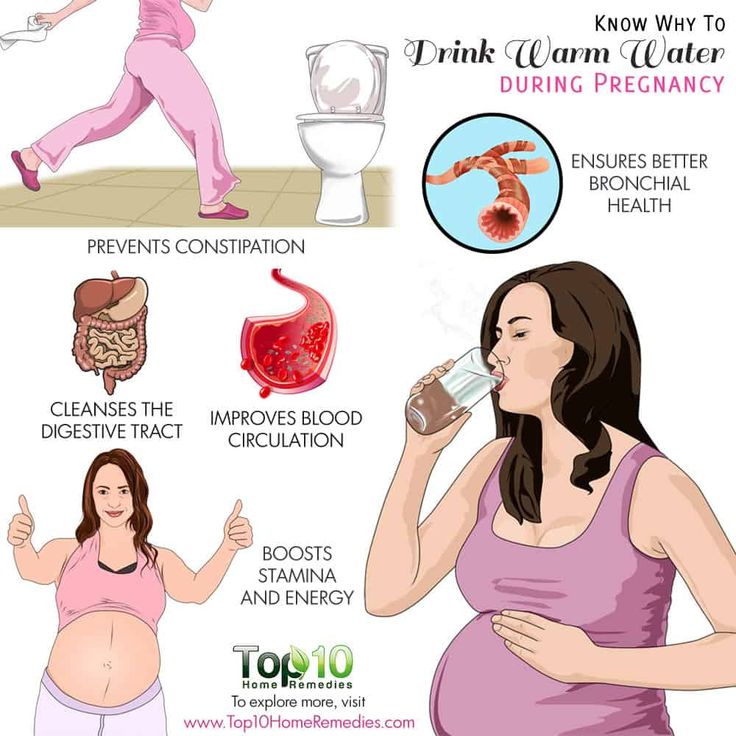
- Cooking your meals thoroughly is a good rule of thumb, especially when you are pregnant. Your immune system is affected during pregnancy so the risk for food borne illnesses is higher for you and your unborn child. Proper food preparation is one way of protecting yourself and your baby from health risks.
Go to top
Information about Specific Essential Nutrients
- Iodine during Pregnancy
- Iron during Pregnancy
- Vitamin B12 and Pregnancy
- Folic Acid Deficiency During Pregnancy
Go to top
Get Legitimate Advice on What to Eat During Pregnancy
Knowing what to eat during pregnancy will keep you and your baby safe and healthy. With nutritious meals on the table, you can safeguard your child from various health risks. Eating the right foods will also reduce symptoms, such as nausea, morning sickness and fatigue.
Some long-time parents who insist that they know the routine should never assume this pregnancy will be like their others nutritionally.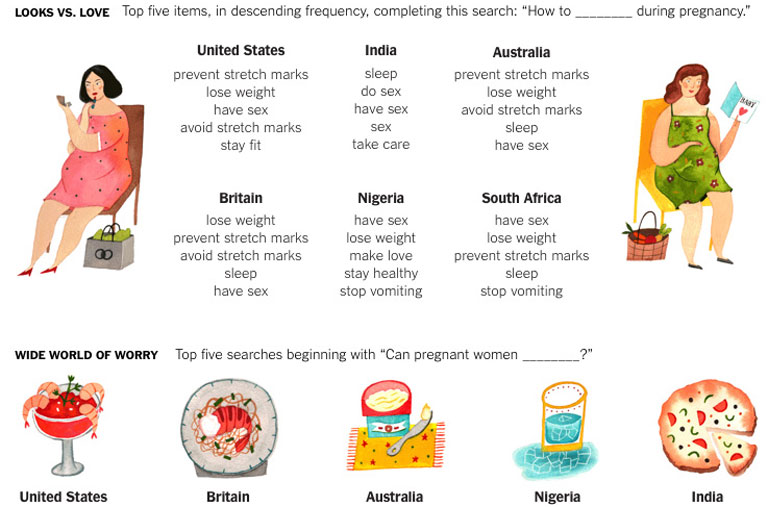 Your family and friends may also mean well when giving you pregnancy advice, but keep in mind that a legitimate set of guidelines is what you need the most. This will ensure that you get precise details on what to eat and what not to eat during pregnancy.
Your family and friends may also mean well when giving you pregnancy advice, but keep in mind that a legitimate set of guidelines is what you need the most. This will ensure that you get precise details on what to eat and what not to eat during pregnancy.
First-hand information from a nutritionist specializing in prenatal care is 100% reliable. Ideally, consult one, who will offer advice tailored for your specific needs. A certified nutritionist** can provide you definitive advice on proper prenatal care and diet.
During pregnancy, you are your baby’s only source of nourishment. What you eat and drink will affect your child’s health, so you want to be sure that you choose the best food to eat during pregnancy.
Family Health Centers of San Diego can guide you through your pregnancy. Our dedicated certified nutritionists** and registered dietitians will assess your condition and help you make healthy food choices. We will help you manage your symptoms through the foods you eat and educate you on prenatal care.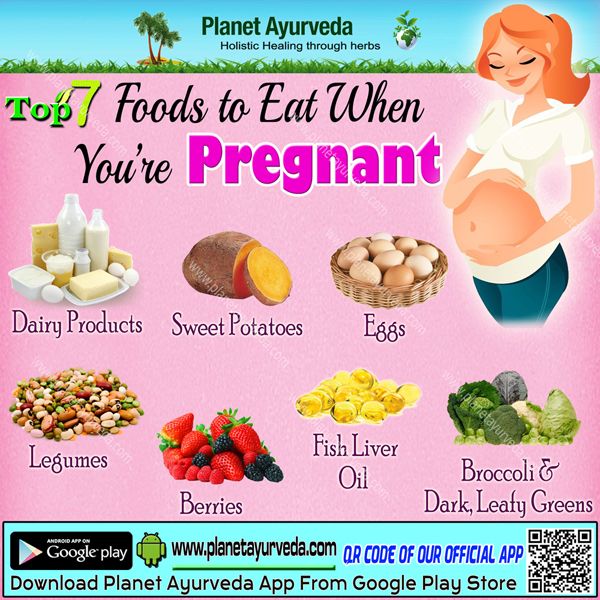
Go to top
Nutrition of a pregnant woman
So, your plans and decisions to give birth to a child have come true - you are pregnant! But this news causes you a double feeling: - on the one hand, a feeling of joy, and on the other hand, a feeling of certain fear and even fear of unknown trials for your life and the fate of the unborn baby. What will he be like? - healthy, beautiful, happy?...
And this largely depends on the woman herself, on what lifestyle she will lead during pregnancy and, most importantly, how she will eat.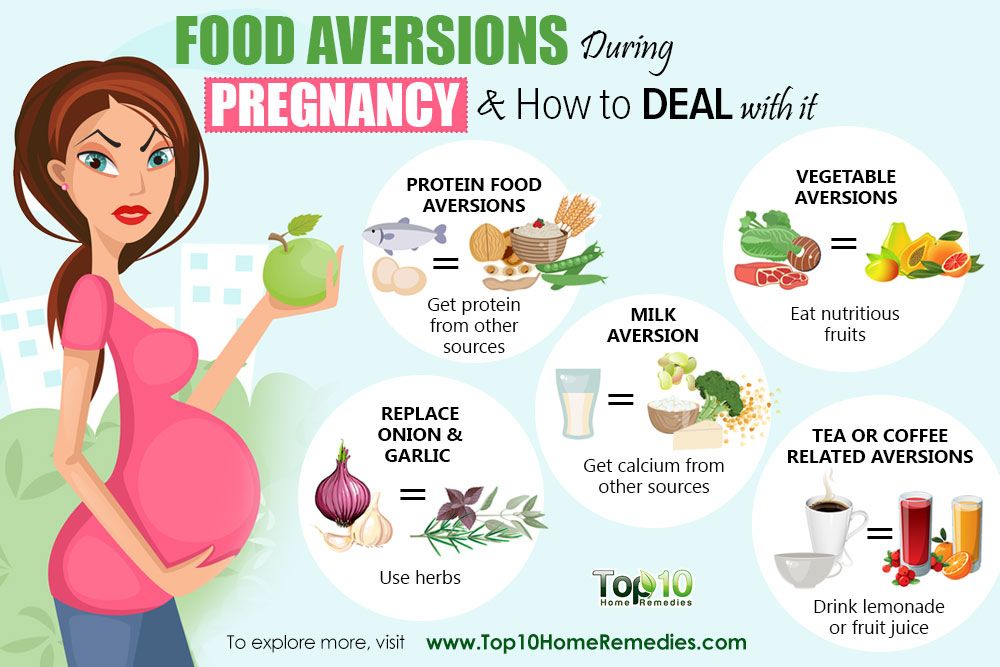
Nutrition of a woman in different periods of pregnancy
The main thing in the menu of a future mother is variety. She should consume foods from all food groups: meat, fish, vegetables and fruits, dairy products, bread and cereals.
A woman's nutrition during pregnancy can be roughly divided into three periods (trimesters).
If before pregnancy a woman ate normally, felt comfortable, did not experience allergies to any products, then it is not worth changing her diet at an early stage of the first trimester of pregnancy.
During this period, all organs and systems in the child's body are formed, tissues are formed. The body needs complete proteins and vitamins: lean meat (rabbit, chicken, turkey), fish and seafood, dairy products. Be sure to eat rice, fresh or frozen vegetables, seasonal fruits. In the first trimester, many expectant mothers are still working. No matter how difficult it is to control your diet in the workplace, you need to do it - find time for a full breakfast and lunch.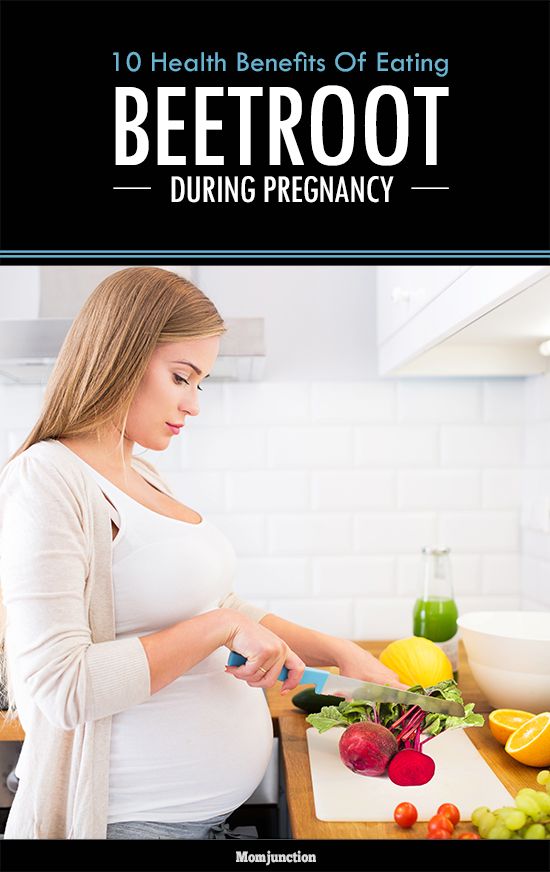
In the first trimester of pregnancy, there is an active restructuring of the body and adaptation to a new state. During this period, it is recommended to switch to a low-calorie diet, which includes more fruits, juices, decoctions of dried fruits, including rose hips. At the very beginning of pregnancy, especially if toxicosis torments, more frequent, but less plentiful meals are recommended.
Always keep a hematogen, a bag of nuts or dried fruit in your pocket to have a snack on the street. If your condition does not allow you to eat regular food, you should pay attention to baby food. Baby products literally save expectant mothers suffering from severe toxicosis. These are boxed cereals, children's curds, cookies and fruit purees.
In the first trimester, special attention must be paid to the quality of products. Gradually abandon sauces, semi-finished products and canned food containing harmful chemical additives. Do not forget that the placenta freely accumulates and passes chemistry. The importance of products containing folic acid is great, without it intensive metabolism is impossible, its deficiency can cause developmental abnormalities. Folic acid is found in greens, nuts, white cabbage and broccoli, beets, legumes, and eggs.
The importance of products containing folic acid is great, without it intensive metabolism is impossible, its deficiency can cause developmental abnormalities. Folic acid is found in greens, nuts, white cabbage and broccoli, beets, legumes, and eggs.
According to nutritionists, the diet of pregnant women should be 300 kcal / day higher than that of non-pregnant women, but in the first trimester there is no need to increase the energy value of the diet at all; in the second trimester, an additional 340 kcal / day is required; in the third trimester - 452 kcal / day. Pregnant women generally get enough calories, and more than 80% of women achieve and even exceed the required weight gain. These extra calories benefit the fetus. An underweight woman should gain 16–20 kg during her entire pregnancy, an overweight woman about 7 kg, and a normal body weight of 11–12 kg.
In the second trimester there are active jumps in the height and weight of the baby and uterus, so the caloric content of the diet needs to be increased.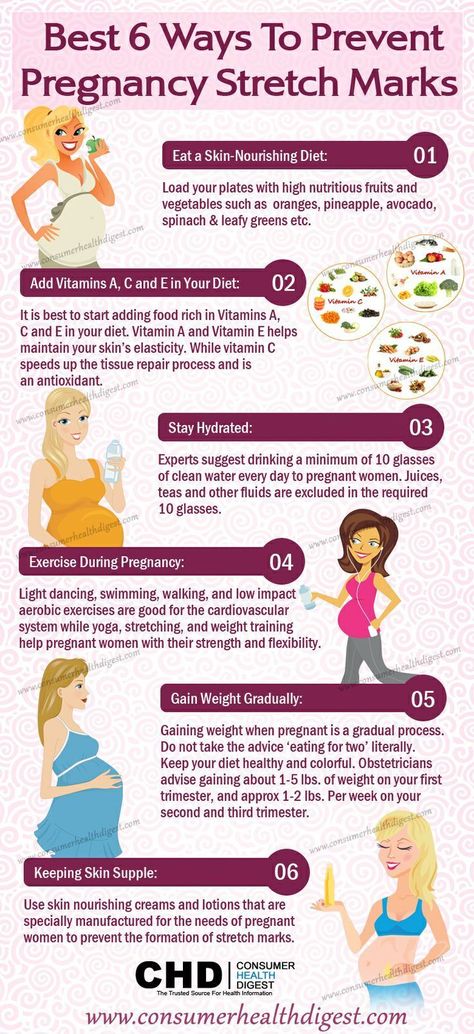 It is desirable to eat more and better. At this time, the need for trace elements increases: iron, magnesium, zinc, selenium, calcium, potassium. The child creates his own "reserve" of trace elements using the mother's resource, which means that the mother should have enough of them for two.
It is desirable to eat more and better. At this time, the need for trace elements increases: iron, magnesium, zinc, selenium, calcium, potassium. The child creates his own "reserve" of trace elements using the mother's resource, which means that the mother should have enough of them for two.
Very often in pregnant women in the second trimester hemoglobin drops, this is a normal physiological phenomenon, if it is not threatening to health. You can increase hemoglobin by eating red meat, chicken, fish, dried fruits, pomegranates, green vegetables and fresh herbs, buckwheat, citrus fruits (oranges, grapefruits, pomelo, lemons), rosehip and berry infusions.
In the second trimester, a pregnant woman should limit the intake of smoked and fried foods, as well as salt in her diet. In no case should you limit the liquid. Pure water is the best drink for a pregnant woman, and water should be consumed up to 2-2.5 liters per day. Water is a natural drink for the body, it does not cause complications and has no contraindications. Edema is caused not by water, but by salt, which we not only add in its pure form, but also consume with canned food, mayonnaise, cheese, and sausage. The absence of salt is not harmful, it is naturally found in many products: vegetables, bread, so the diet will not remain completely without it. Excess salt disrupts metabolism.
Edema is caused not by water, but by salt, which we not only add in its pure form, but also consume with canned food, mayonnaise, cheese, and sausage. The absence of salt is not harmful, it is naturally found in many products: vegetables, bread, so the diet will not remain completely without it. Excess salt disrupts metabolism.
During this period, you can increase the calorie content of food. Childbirth must be approached physically strong. It is better to eat meat and fish in the morning, for breakfast and lunch, and for dinner, prepare dairy and vegetable dishes: cheesecakes, stewed vegetables, cottage cheese and vegetable casseroles. It is necessary to minimize the intake of canned food, smoked meats, pickles and marinades, hot spices and fatty foods. Frequent walks in the air, physical activity are recommended.
In the third trimester, it is necessary to reduce the calorie content of foods at the expense of confectionery and flour products, eat less fatty meat, as well as cheese and sour cream.
By the end of this period, many experts advise pregnant women to give up meat altogether in order to increase tissue elasticity and prevent ruptures.
During the entire period of pregnancy, special attention should be paid to the combination of products. If you combine foods wisely, you can ensure more efficient absorption of food. If the food is digested poorly, then this can lead to rotting and fermentation of products and the formation of substances harmful to the body of the mother and child. In addition, the fermentation process is accompanied by gas formation, which can lead to flatulence (bloating) and discomfort. This is especially harmful in the last stages of pregnancy.
Try not to take the first, second and third course at the same time; this overflows the stomach and presses on the fetus, the food is poorly digested and poorly absorbed. Eat little and often. It is not recommended to eat immediately before starting work, a long walk, before charging and immediately after it; it is advisable to rest for 10 minutes before eating.
Eat only when you are hungry, try not to snack on the go. Follow the diet, eat at about the same time.
Proper preparation of food will help to maximize the useful substances contained in the products. Do not overcook food, try not to reheat the same dish several times, it is better to set aside only the portion that will be used. Cook in the most gentle way: baking, steaming, stewing. Avoid frying, boiling in large amounts of water, with this method of processing products, many useful substances are lost. If possible, do not cook for several days at once. Do not use aluminum cookware when cooking. Remember that for a pregnant woman, it is not calories that are important, but the quality of food, its naturalness, primarily a “living cell” (whole cereals, raw vegetables and fruits, fresh meat and dairy products).
What can harm the pregnant woman and the fetus
Smoking and alcohol – quit smoking from the first days of pregnancy, if you have smoked before, avoid "passive" smoking, and do not consume alcoholic beverages in any doses.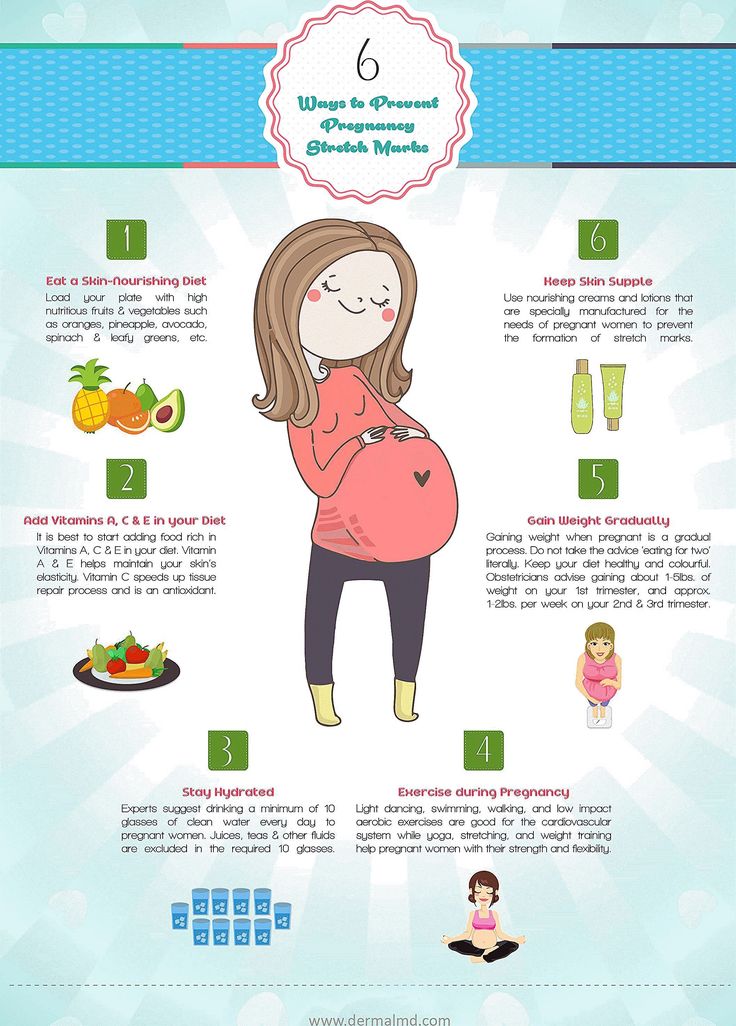
Lack of vitamins and microelements in the body - their absence or deficiency can lead to irreparable consequences. So, for example, iodine deficiency can lead to mental retardation of a child, folic acid deficiency - to severe fetal deformities, calcium deficiency - to a violation of the formation of the child's skeleton, iron deficiency - to anemia and a delay in the physical and neuropsychic development of the child. It is necessary to consult a doctor, perhaps he will recommend switching to iodized salt, as well as supplementing your diet with a vitamin-mineral complex and folic acid.
Excess weight is the risk of having a large child, which means the risk of complications during childbirth and the child's tendency to become obese at an older age.
The use of food additives (sauces, seasonings such as vegeta, bouillon cubes), exotic fruits, semi-finished products, carbonated drinks - the risk of allergies and anomalies in a child, unfortunately, increases.
Recommended for pregnant women:
- Do not eat hot dogs and other snacks containing meat that has not been heated on fire or boiled in boiling water.

- Avoid soft cheeses. Hard cheeses are safe.
- Do not eat raw frozen pies and meat pastes, seafood. Canned analogues are safe.
- Do not consume raw vegetables, unpasteurized juices, liver, meat, poultry and eggs that have not been sufficiently cooked. These products may contain Salmonella taxins.
- Limit sweets.
- In no case do not resort to starvation and various diets.
- Regularly monitor blood pressure and do not miss visits to the gynecologist.
Remember!
Your child's development and health depend on your diet and lifestyle during pregnancy!
Nutrition during pregnancy - Geburtsinfo Wien
Many people think that pregnant women should eat "for two", that is, twice as much as usual. But it's not!
It is much more important to organize a healthy diet with plenty of fresh vegetables and fruits, fish, milk, dairy products and high quality fats. Drink plenty of fluids, preferably water or unsweetened tea. Don't diet or fast, even for religious reasons. Diets and fasting are harmful to pregnant women.
Don't diet or fast, even for religious reasons. Diets and fasting are harmful to pregnant women.
Essential for healthy development of the child:
- folic acid: in spinach, broccoli, egg yolk, tomatoes and bananas
- Iron: in meat, black pepper, cinnamon, parsley, beans, peas, lentils, sesame seeds, poppy seeds, nuts
- Iodine: use iodized table salt!
- Calcium: in milk, dairy products, cabbage, broccoli, leeks, dill
Discuss all questions with your doctor and read the following information:
Dangerous and illegal foods for pregnant women
During pregnancy, the entire female body changes. This can weaken the immune system, lowering the body's defenses. Therefore, at this time, infectious diseases are more severe than usual, which can jeopardize the health of the mother and unborn child.
Take precautions: When preparing and eating food, pay attention to the following two things:
- Practice strict hygiene when preparing and storing food.
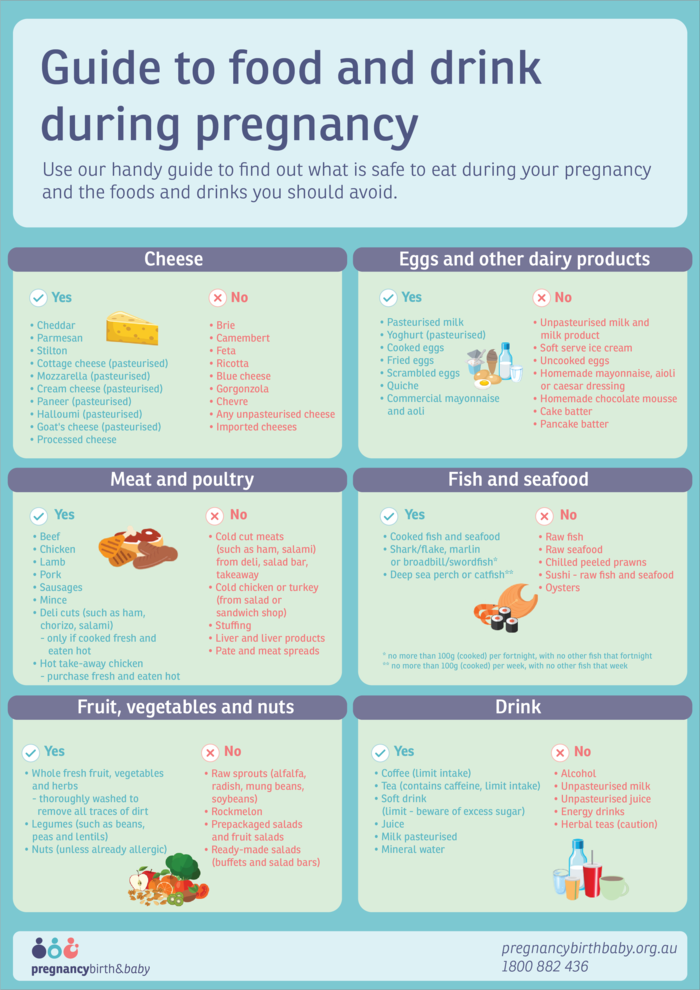
- Avoid so-called dangerous foods.
Dangerous foods include:
- raw milk and raw milk products
Discard raw milk or boil it first.
Avoid raw milk products. You will recognize these products by their "Made with Raw Milk" label.
Remove the skin from the cheese and do not eat cheeses that ripen in the presence of slime microflora (eg tilsiter, quargel) and soft cheeses (eg camembert).
- Meat, fish and eggs
WARNING! Avoid oily predatory fish such as tuna, swordfish, halibut and pike. These fish often contain heavy metals.
Heavy metals are also found in giblets. Therefore, you will have to give up offal.
Avoid raw and undercooked fish and seafood, including sushi, oysters, and the like.
Avoid smoked and pickled fish, including smoked salmon, and gravaviloha.
Do not eat raw or undercooked eggs, meat or sausages. This list includes carpaccio, beef tartare, low to medium rare steak, salami, smoked sausage, hunting sausages, smoked ham, smoked meat, ham fat, soft-boiled eggs, fried eggs or raw egg dishes, including homemade tiramisu and the like.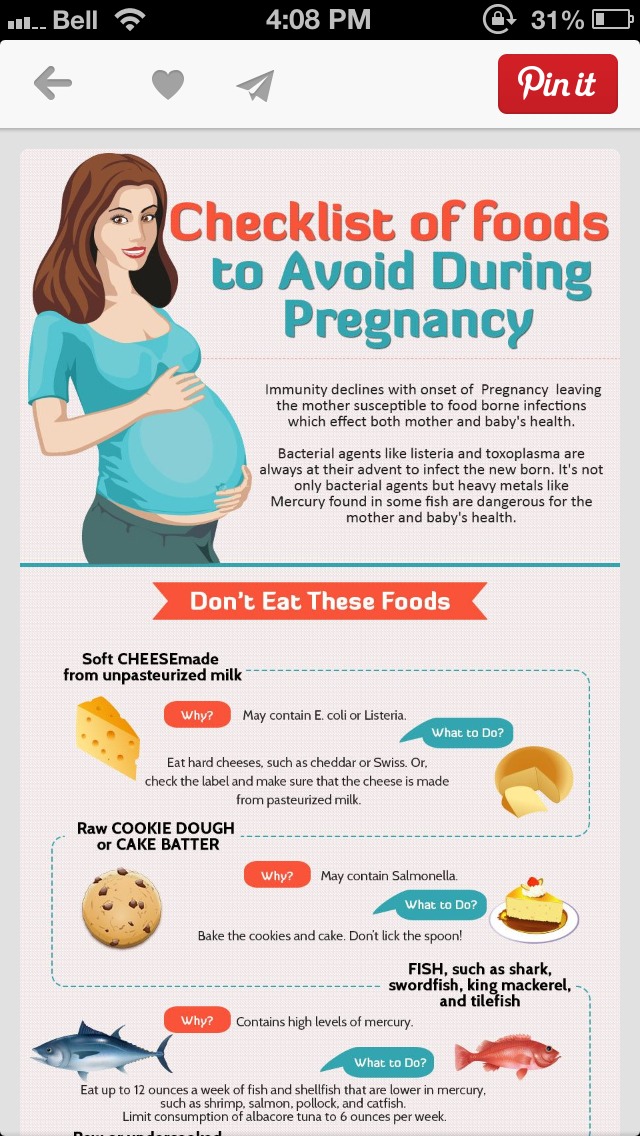
- Drinks
Avoid alcohol and smoking. So far, no scientific study has been able to prove that alcohol, even in small doses, is not dangerous for pregnant women. Therefore: hands off alcohol! Be aware that flour products, sweets or cooked sauces may contain (residual) alcohol!
Don't take unnecessary risks and keep caffeinated drinks to a minimum. No more than 2-3 cups of coffee or 4 cups of green or black tea are allowed. Attention: Cold tea and coffee drinks, coca-cola, guarana drinks, many energy drinks and the like contain caffeine!
As a precaution, do not consume freshly squeezed and uncooked fruit and vegetable juices sold in stalls and shops.
Do not drink beverages containing quinine, such as gin and tonic, Bitter Lemon, etc.
Talk to your doctor and read the following information:
Addictive Substances
Quit All Alcohol, Tobacco and Drugs During Pregnancy!
Alcohol
Do not drink alcohol during pregnancy! Even in small doses, alcohol can cause serious harm to a child.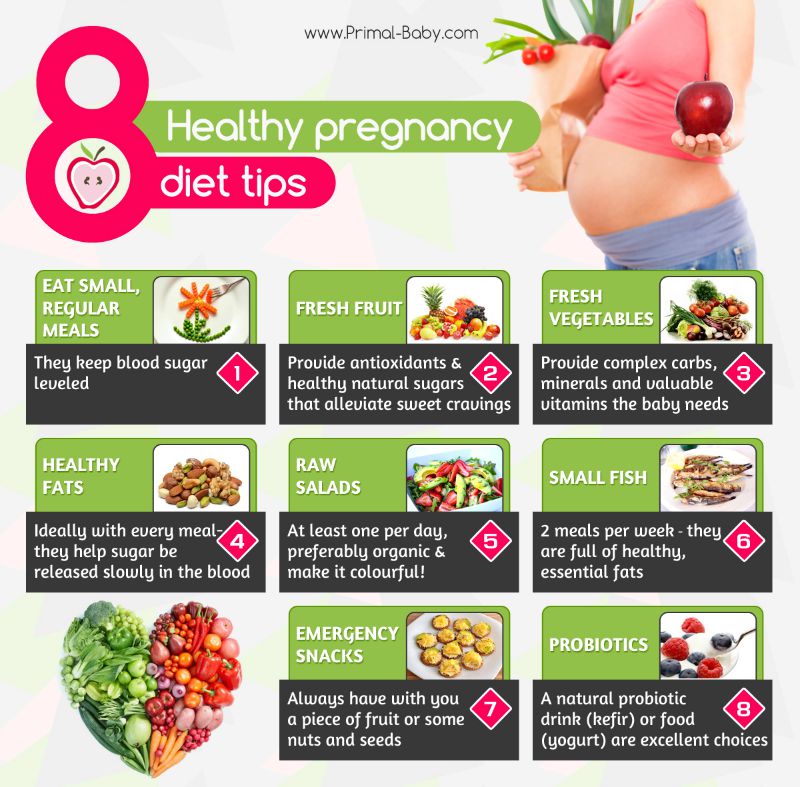 Alcohol acts like a poison on the nerves and brain, being one of the most common causes of anomalies in the development of the child.
Alcohol acts like a poison on the nerves and brain, being one of the most common causes of anomalies in the development of the child.
Talk to your doctor and read the following information:
Smoking
Stop smoking during pregnancy and avoid smoky rooms! Cigarettes contain nicotine and nearly 5,000 other chemicals. If inhaled, all of these substances can cause serious harm to your child. Pregnant women who smoke often have miscarriages or premature births. Children born to smoking mothers often suffer from asthma, allergies, pneumonia, bronchitis and other diseases. There is also an increased risk of sudden infant death syndrome.
Talk to your doctor and read the following information:
Drugs
Do not take drugs or intoxicants during pregnancy! Drugs can seriously harm your baby's development and, in the worst case, lead to miscarriage or stillbirth. If you have an addiction, don't be ashamed of it and discuss the situation with your doctor.